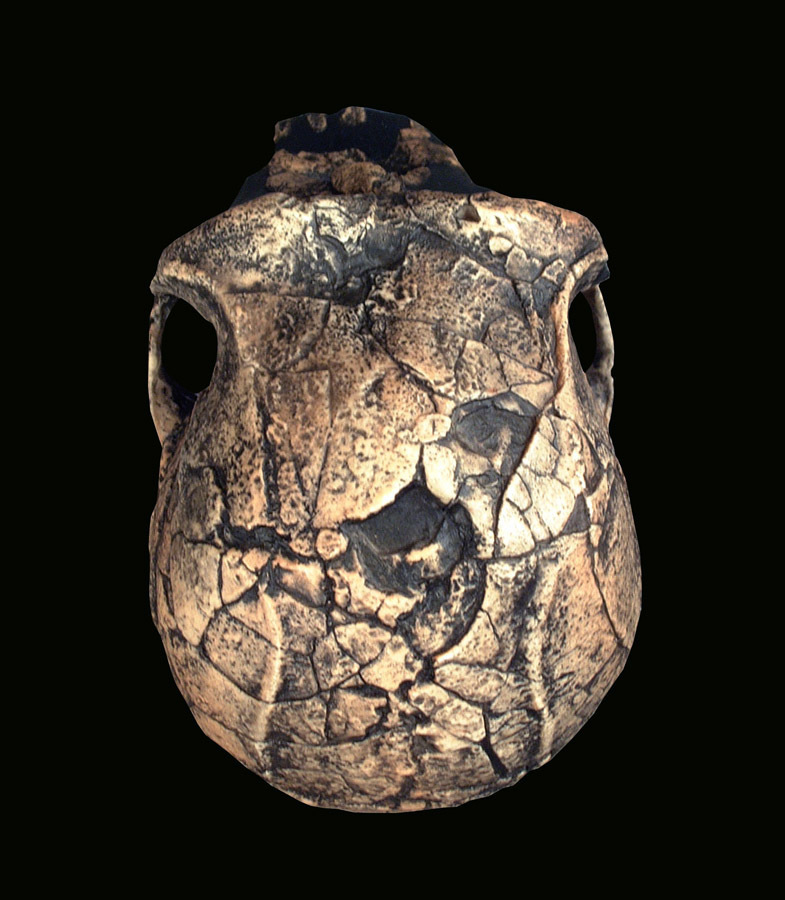The traits that make human beings unique...
Geege Schuman stashed this in Humankind
Stashed in: History!, Art!, Dancing!, Awesome, Anthropology, humanity, Anthropology!
There is little evidence that any other hominins made any kind of art.
Evidence in the form of stone tools suggests that for about 100,000 years our technology was very similar to the Neanderthals. But 80,000 years ago something changed.
"The Neanderthals had an impressive but basically routine material record for a hominid. Once H. sapiens started behaving in a strange, [more sophisticated] way, all hell broke loose and change became the norm," Tattersall says.
We started to produce superior cultural and technological artefacts. Our stone tools became more intricate. One study proposes that our technological innovation was key for our migration out of Africa. We started to assign symbolic values to objects such as geometrical designs on plaques and cave art.
By contrast, there is little evidence that any other hominins made any kind of art. One example, which was possibly made by Neanderthals, was hailed as proof they had similar levels of abstract thought. However, it is a simple etching and some question whether Neanderthals made it at all. The symbols made by H. sapiens are clearly more advanced. We had also been around for 100,000 years before symbolic objects appeared so what happened?
While both chimps and humans cooperate, we will always help more.
Somehow, our language-learning abilities were gradually "switched on", Tattersall argues. In the same way that early birds developed feathers before they could fly, we had the mental tools for complex language before we developed it.
We started with language-like symbols as a way to represent the world around us, he says. For example, before you say a word, your brain first has to have a symbolic representation of what it means. These mental symbols eventually led to language in all its complexity and the ability to process information is the main reason we are the only hominin still alive, Tattersall argues.
It's not clear exactly when speech evolved, or how. But it seems likely that it was partly driven by another uniquely human trait: our superior social skills.
Comparative studies between humans and chimps show that while both will cooperate, humans will always help more. Children seem to be innate helpers. They act selflessly before social norms set in. Studies have shown that they will spontaneously open doors for adults and pick up "accidentally" dropped items. They will even stop playing to help. Their sense of fairness begins young. Even if an experiment is unfairly rigged so that one child receives more rewards, they will ensure a reward is fairly split.
I had high hopes for this article, that's on me. I found a few logical stumbling blocks in the points made by the article, I'm curious to hear what you think, Big Panda.
The big premise appears to be the invention of language. And there are 2 problems with this.One: Research, as well as common sense, points to all kinds of animals having the ability to talk to one another.
Chickens squawking to signal the approach of a hawk to other chickens, apes disciplining the young by yelling at them, dolphins always trying to tell us something [probably, "thanks for all the fish"], wales, elephants, and the list goes on.
The human ability to speak -if one thinks rationally about it- didn't materialize out of nothing all of a sudden, barring alien intervention :-p
It must have started out as proto-speak of some sort. Well, animals certainly have that, so the question is why did only human proto-speak evolve beyond its modest beginnings? The article overlooks that logical pitfall completely.
Two: Research shows that our speaking equipment may have come from inbreeding with Neanderthals. I wish I had more time to dig up that BBC documentary, but I'm sure someone will Cunningham's Law me on that one if it's wrong.
Bonus round: The size of human brain is often brought up when discussing human ability to metacognition. [btw, they spent half the article talking about metacognition without naming it, way to dumb it down, BBC :-)
Meanwhile, elephant's brain is 11-13lbs [looked that up on the googles real quick] and it has all the prerequisite folds and dendrites, and is convoluted with distinctive lobes. All traits we commonly attribute only to a human brain, an yet here we are, elephants are not discussing human cognition.
What do you think about that, Big P.?
I think you're right. This article could have been much more.
For example, humans are the only species that negotiate and trade:
http://pandawhale.com/post/64628/an-evolutionary-biologist-explains-why-we-speak
Some evolutionary biologists believe this is why language and speaking were invented.
Others believe language and speaking were fundamental for humans to know who to trust.
The ones who were able to speak were better able to oust the untrustworthy ones.
Your point that humans bred with the Neanderthals is a good one, too.
And it is entirely possible Dolphins discuss human cognition. We don't know.
I think all this stuff about art and cooperation comes back down to what I've always said: the thing that separates humans from the rest of creation is the ability to make summer novelty dance crazes. Ain't nobody else coming up with the Gangnam Style, the Dougie, the Macarena, the Cha-cha Slide, etc.
I had to look up the Cha Cha Slide.
It is similar to the Electric Boogie.
so is group dance like a double whammy for humanity?
Group dance is part of the reason why humanity is unique.
And it's probably useful for survival since it showcases our ability to coordinate and collaborate.











11:08 AM Jul 08 2015